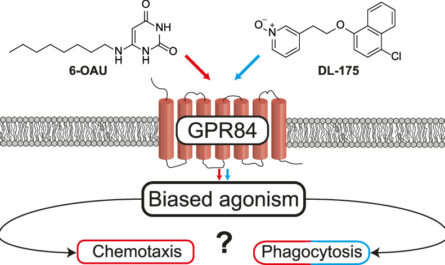Breast cancer survivors are employing techniques recommended by their peers or discovered on their own to enhance sexual functioning, according to a recent study published in the open-access journal PLOS ONE. The study, conducted by Christiana von Hippel from the Dana-Farber Cancer Institute and the Harvard T.H. Chan School of Public Health, along with colleagues, found that one-third of users on a prominent breast cancer support forum utilized these techniques.
Over 75 percent of breast cancer survivors experience some form of sexual dysfunction. However, commonly prescribed interventions, such as vaginal lubricants or numbing creams, only yield moderate results. In addition, many women face difficulties discussing sexual dysfunction with their healthcare providers.
To explore the frequency of sexual dysfunction and investigate approaches to improve sexual function, von Hippel and her team engaged with members of the online Breastcancer.org forum community. The participants were women over 18 years old who had been diagnosed with breast cancer stages I-IV.
A total of 501 women who completed an online survey were included in the study. The median age of the participants was 53. Around 70 percent of the women reported being sexually active during the survey period, with 69 percent identifying as heterosexual, 65 percent as partnered, and 71 percent as White. A significant number of participants did not provide information on partner status, sexual orientation, or race/ethnicity. Prior to cancer treatment, 47 percent of participants reported being very or extremely satisfied with their sex lives. However, 44 percent stated that their sex lives had significantly worsened after diagnosis. While a quarter of the participants discussed sexual function concerns with their healthcare providers, the majority (57 percent) never brought up the sexual side effects of breast cancer treatment. The most common sexual issues reported were vaginal dryness and pain during penetration.
Interestingly, 35 percent of participants revealed that they used techniques recommended by peers or discovered methods on their own to improve sexual functioning. These techniques were categorized into four main domains: pain reduction (e.g., using coconut oil as a lubricant or experimenting with new positions), intimacy and relationship enhancement (e.g., improved communication with partners), desire and arousal enhancement (e.g., engaging in solo masturbation or incorporating erotica before partnered sex), and emotional coping (e.g., adopting a different mindset). Approximately 46 percent of participants rated these techniques as moderately or more effective when used in addition to or instead of standard techniques offered by healthcare providers.
While the authors acknowledge that their study may not be entirely generalizable due to the lack of diversity in the sample, they encourage healthcare providers to initiate conversations regarding sexual health with their breast cancer patients and consider sharing coping techniques discussed by the participants in the study.
The authors additionally highlight the resourcefulness of breast cancer survivors in seeking innovative solutions to address the gap in their care for sexual symptoms.
Note:
- Source: Coherent Market Insights, Public sources, Desk research
- We have leveraged AI tools to mine information and compile it




